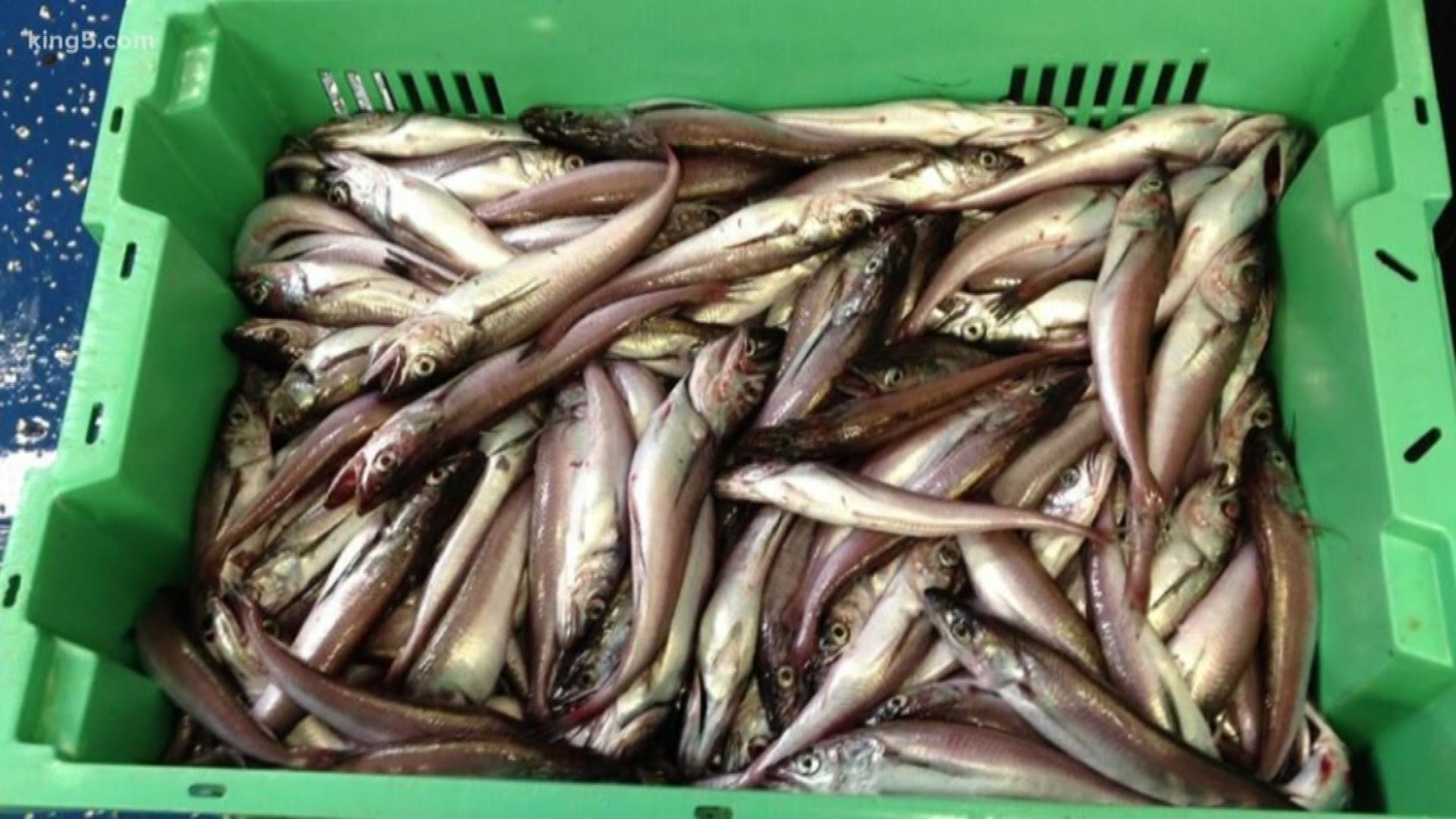The federal government shutdown has scientists nationwide locked out of their labs, and many of them study fish. It's work that is central to fishing seasons along the west coast.
"I love my U.S. federal job at @NOAAFish_NWFSC but it's immensely frustrating to have #shutdown be such a common disturbance," tweeted NOAA Stock Assessment Scientist Ian Taylor. "Last time it was short, science got done, and U.S. #pacifichake catch was ~300,000 tons in 2018. Now 2019 assessment needs to happen yet here we go again."
Taylor works at a National Oceanic and Atmospheric Administration facility with a now-closed entrance gate and a sign blaming the closure on the government shutdown. It's filled with offices of scientists working on research that ranges from toxic algae to whales to analysis that sets fishing seasons, like Taylor's work.
"I am not an avid Tweeter and I don't have a lot of followers, but for the people who are out there who do pay attention to what I say, I am frustrated by the conditions here," Taylor said.
Taylor helps set the amount of Pacific hake allowed for catch, a fish that's very popular, with hundreds of thousands of tons caught each year. Taylor and his colleagues estimate how many hake are alive and how many can be sustainably taken.
"We are very proud to be representing the United States. When we are shut down, I don't think it looks particularly good," said Research Fishery Biologist Jason Cope. "Any part of the community that depends on these fisheries for their local subsistence or appreciation or recreation are going to be affected by the work that we do here."
The work they've done over the last decade has helped restore disappearing fish populations, Cope says, and re-opened fishing opportunities that had closed.
"These are all wonderful things that came from this and to let people know that when we get shut down, it does matter," Cope said. "The community here hopefully realizes the good work that we do here and supports us."
The next hake fishery report is due in a few weeks, and Taylor is not sure what will happen. His team partners with Canada, whose scientists are now doing the work alone, but without all the data from the entire U.S. West Coast.
"With the Pacific Hake Fishery, it's possible that less fishing would take place. It's also possible that the quota remains high, in which case the risk of overfishing or doing harm to the population would be higher," Taylor said.
See more environmental stories from KING 5's Alison Morrow

